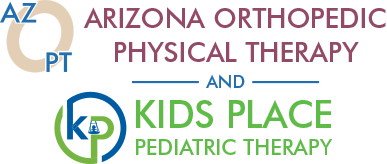Ask the Therapist: Am I Confusing my Child by Speaking More Than One Language?
by Pauline Munoz, CCC-SLP
Kids Place Speech and Language Pathologist
Families who speak more than one language at home are often worried their children may develop a speech or language delay. This is because of their fear that the child may become confused hearing multiple languages. This is NOT the case!
On the contrary, while bilingual language development may seem slower than monolingual language development, research has shown that the earlier children begin to hear both languages, the greater chance they have to successfully become bilingual. A child learning both languages at once is also learning all words in each language, which must be accounted for. This may appear to slow down the rate of language learning. However, bilingual children should still meet major milestones at appropriate ages. For example, their first words should be spoken around the age of one, and two word phrases around the age of two.
As children learn two languages, it is common for them to mix words and grammar rules from both languages when they are speaking. For example, saying, “Dame mis shoes” for “give me my shoes.” This is referred to as code-switching, which is normal, and does not mean that they are confused. Children will eventually be able to separate both languages and learn which language they can use when talking to different people.
Bilingualism does not cause speech or language delays, but a bilingual child can have a speech and language delay just like a monolingual child. The difference is that with bilingual kids the delay will show up in both languages, not just one. A true speech or language problem will be noticeable in both languages overall, not just when the child is speaking one language. It is important to know that bilingualism is not the reason for speech or language delays.
Just like any other skill that children have to learn, bilingualism is one that takes a lot of practice. Children with special needs and cognitive impairments can learn words in two languages as well as their monolingual counterparts can learn words in one language. The more you practice speaking, reading, and writing with your child in both languages, the more opportunities you are providing for them to become bilingual.
If you feel that your child may still be delayed while learning more than one language, please reach out to your pediatrician for a speech and language evaluation referral.
For more information on bilingual language development:
https://www.asha.org/public/speech/development/Learning-Two-Languages/
https://www.healthychildren.org/English/ages-stages/gradeschool/school/Pages/7-Myths-Facts-B ilingual-Children-Learning-Language.aspx







